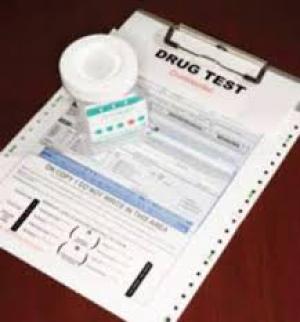Maine's governor signs a bill to seal the records of past marijuana offenses, a North Carolina tribe opens the first medical marijuana dispensary in the state, and more.

Hawaii Senate Kills Marijuana Decriminalization Expansion but Passes Expungement Bill. Fresh from killing off a marijuana legalization bill earlier this month, lawmakers have now killed off a bill that would have expanded marijuana decriminalization, Senate Bill 2487. The legalization bill was killed in the House; this bill was killed in the Senate.
Under current state law, the possession of up to three grams of weed is already decriminalized, with a maximum $130 fine. The killed bill would have increased the decriminalized amount of marijuana to one ounce and decreased the fine to $25.
Foes of the move said it would put children at risk and fuel the black market.
"Illegal marijuana is unregulated, untested, and untaxed," said Sen. Sharon Moriwaki (D). "This creates a significant public health concern. It also contains pesticides, trace elements of metals like lead and nickel, and other toxic chemicals. Decreasing penalties for illegal marijuana sends a message to our keiki and community that this drug is harmless. It is not."
While lawmakers rejected legalization and expanded decriminalization, they approved a pair of bills, House Bill 1595 and Senate Bill 2706, both of which deal with expungement. The former would create a pilot program for marijuana expungements, while the latter would create a so-called Clean Slate Expungement Task Force charged with crafting legislation for a state-led record-clearing program. While that expungement bill does not explicitly mention cannabis, marijuana-related offenses are widely expected to be included in the would-be task force’s discussions.
Those two bills are now on the desk of Gov. Josh Green (D), who can sign them, veto them, or let them pass into law without his signature.
Maine Governor Signs Marijuana Expungement Bill. Gov. Janet Mills (D) has signed into law that provides for the sealing of marijuana-related criminal records, LD 2236.
The new law will allow people convicted of marijuana-related offenses that are no longer criminal offenses to ask courts to seal those criminal records.
With the governor's signature on the bill, half of the 50 states have now enacted legislation for the expungement of marijuana offenses. More than two million records of marijuana arrests or convictions have now been expunged or sealed.
Maine's new law is not as stringent as some others. In many other states, courts are mandated to issue expungements to anyone who qualifies, but under this law, people must proactively petition the courts for relief.
Medical Marijuana
North Carolina Tribe Opens First Dispensary in State. The Eastern Band of Cherokee Indians held the grand opening of the state's first medical marijuana dispensary, the Great Smoky Cannabis Company, on 4/20. The event marked the first time marijuana could be legally purchased in the state.
Although the state has yet to legalize medical marijuana, the Eastern Band's tribal council voted in 2021 to allow medical marijuana within the boundaries of its reservation. Because the tribe is federally recognized as a sovereign nation, it is free to allow medical marijuana even though the state objects.
The objections extend to the state's federal congressional delegation. US Rep. Chuck Edwards (R) filed the "Stop Pot Act" (HR 5323), which would cut funding to entities legalizing marijuana. That bill is aimed directly at the Eastern Band of Cherokee Indians, but it does not appear to be going anywhere. It has been sitting in the Committee on Transportation and Infrastructure's Subcommittee on Highways and Transit since it was filed last September.
Drug Testing
Feds Consider Revising Federal Drug Testing Protocols: Could Drop MDMA, Add Fentanyl. At a meeting last month of the Substance Abuse and Mental Health Services Administration's (SAMHSA) Drug Testing Advisory Board (DTAB), which advises the agency’s drug testing and laboratory testing certification activities, officials were pondering proposed changes to federal workforce drug testing guidelines, including removal MDMA (Ecstasy) from the screens and adding fentanyl.
MDMA has only rarely appeared in workers' urine samples in recent years, while fentanyl has become ubiquitous in illicit drug markets in the past decade. Both MDMA and a related drug, MDA, show up less frequently in test results than PCP, which also may be dropped because it appears so rarely.
While MDMA is on the way out, fentanyl is "involved in a large proportion of overdose deaths in the United States and is therefore an important public safety concern," SAMHSA said in a Federal Register posting about the meeting.
This work by StoptheDrugWar.org is licensed under Creative Commons Attribution-ShareAlike 4.0 International
Add new comment